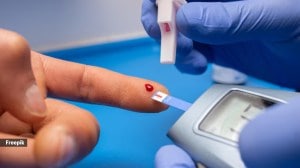Herbs,plants and vulture brains: SAs recipe to revive team fortunes
With the vuvuzelas falling short of providing a winning boost to South Africa at the World Cup,some locals are turning to other,far more imaginative means of help....
With the vuvuzelas falling short of providing a winning boost to South Africa at the World Cup,some locals are turning to other,far more imaginative means of help.
In order to increase the teams chances of making it through the first round of the tournament,people are burning,brewing and smoking. Muti,or traditional medicine,is very much in use in modern-day South Africa. Traditionalists believe a mixture of herbs,plants and animal parts,such as vulture brains and aloe,can be used to change luck,heal sickness or enhance performance. Sometimes,muti can contain human body parts.
Muti works, said Miriam Lethaba,a 62-year-old domestic worker from Ratanda,a township west of Johannesburg. It can make Bafana (the team) strong.
South Africa would become the first host team to be eliminated in the first round if they fail to beat France on Tuesday. To avoid that,traditional healers sangomas are doing their best to give the team an edge,believing that burning muti at football matches can change the teams luck. I believe that muti can improve Bafanas performance, said Abel Zwane,a 50-year-old merchant who sells traditional medicine in Heidelberg,outside Johannesburg.
Muti,developed among the indigenous people of Africa,comes from the Zulu word for tree. Some traditionalists burn or brew muti to ensure good fortune and others use it to predict forthcoming events.
Sangomas are found in the Zulu,Xhosa,Swazi and Ndebele cultures of southern Africa. Some white South Africans,like Ben van der Merwe,have studied with sangomas and also make muti.
Van der Merwe,however,isnt convinced that his potions would be of any use to the national football team. Angunsto Honwano,a 22-year-old street vendor is also sceptical. Muti works for good luck. But for Bafana,they will have to play hard to get through the first round, he said.
But Jaco Lushaba,a 40-year-old traditional Zulu dancer,said muti can help,as long as the players believe in it. Muti is about believing. If you do not truly believe that it can work,then it wont.



- 01
- 02
- 03
- 04
- 05




























